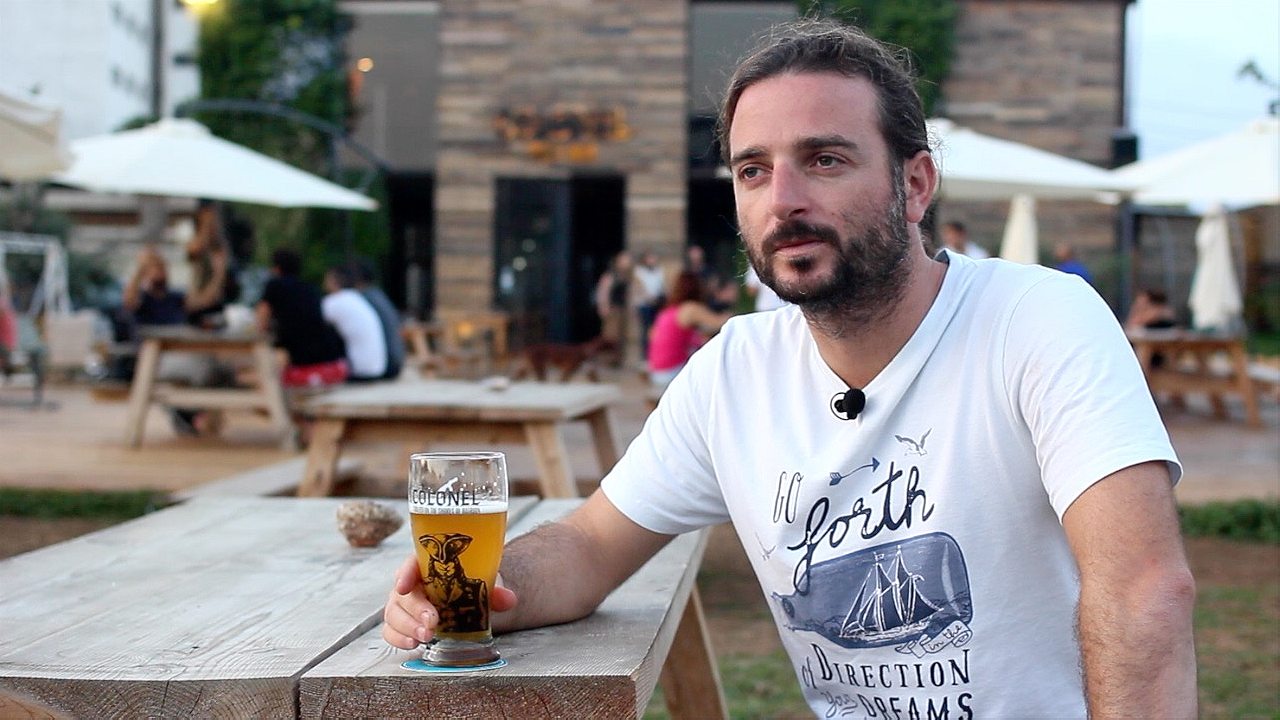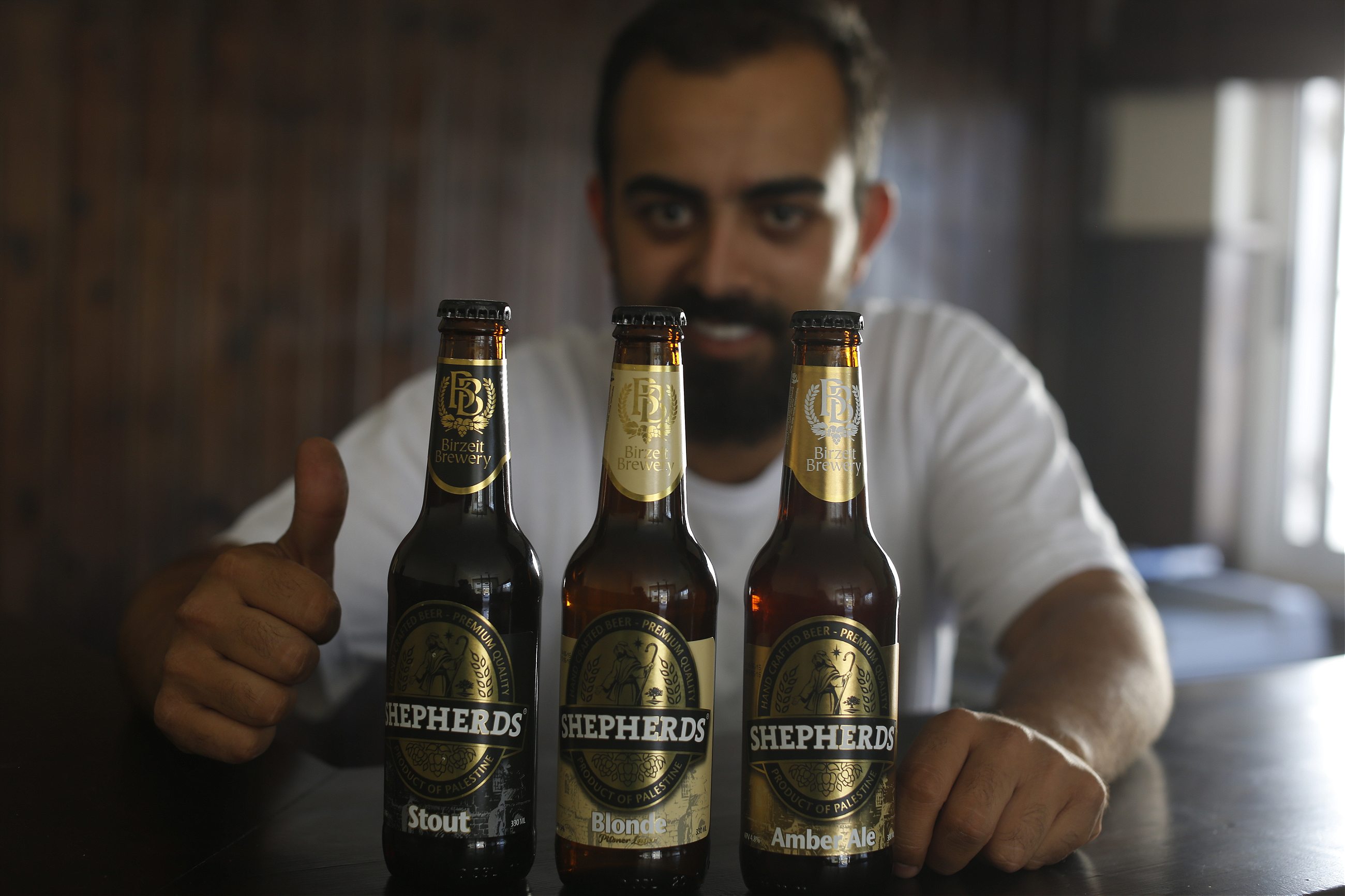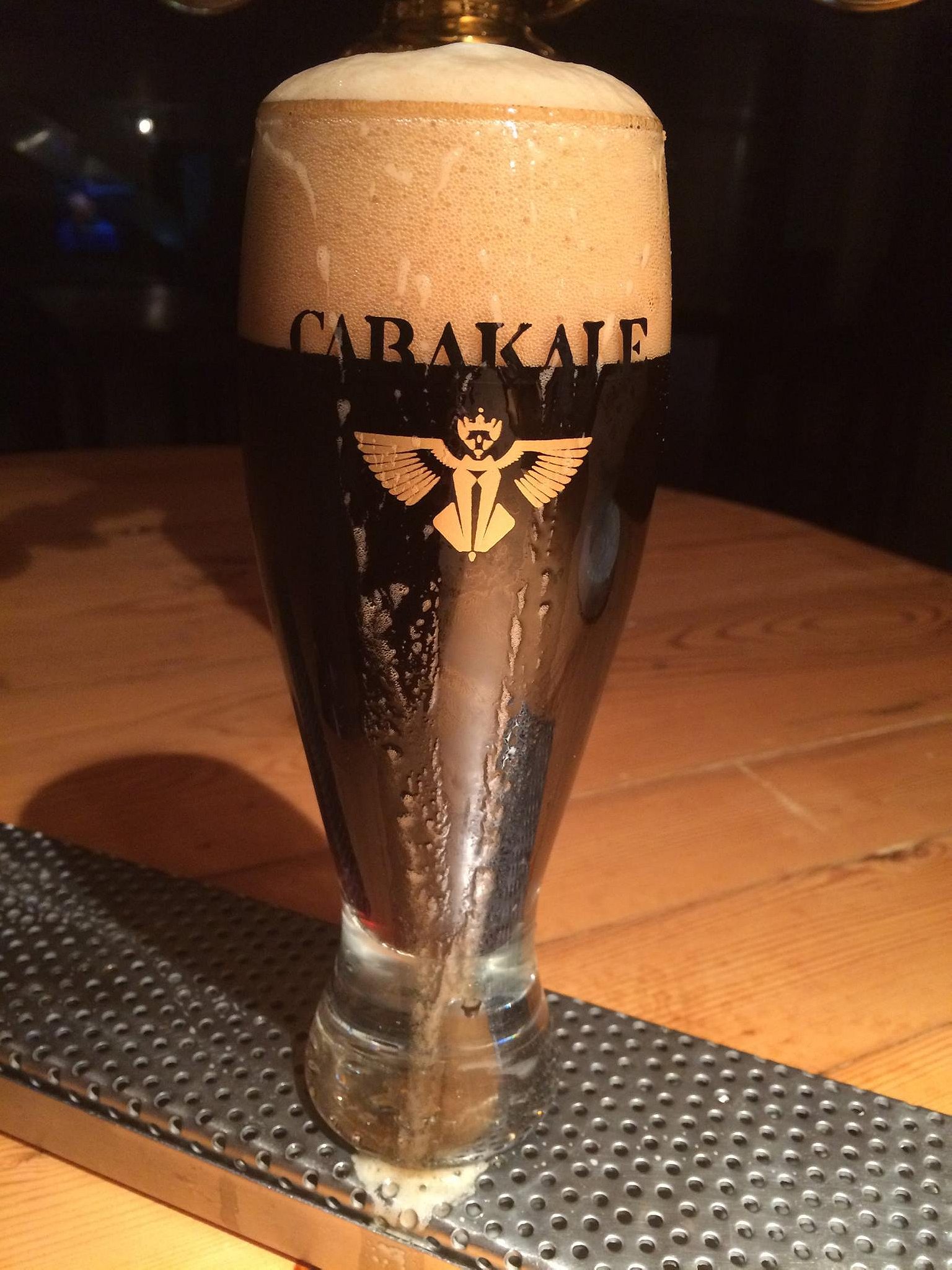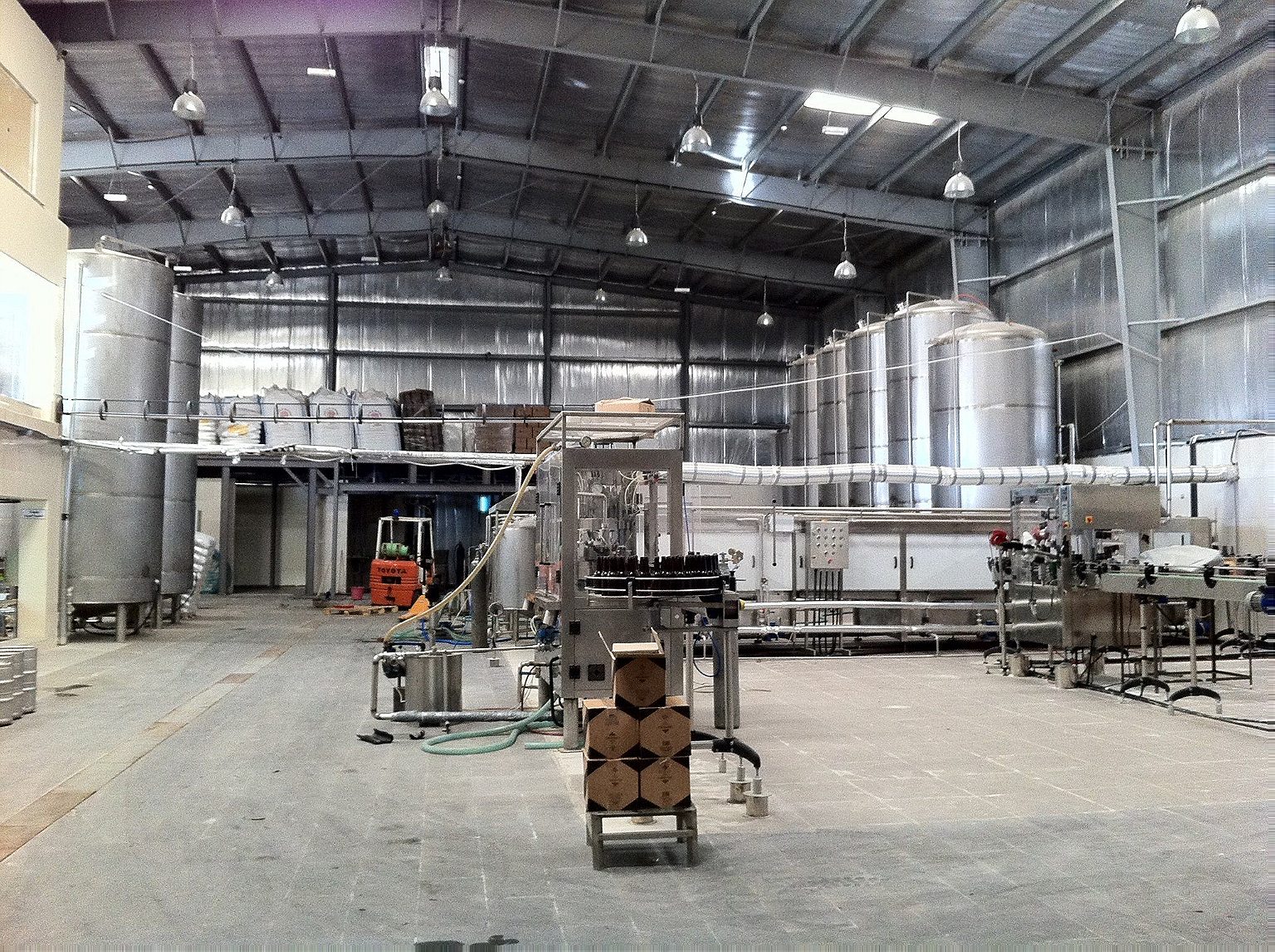From Lebanon to Palestine, a small but vibrant craft beer movement is emerging—and disrupting the culture.
Jamil Haddad, owner of Colonel brewery in his hometown of Batroun, a rocky stretch on the northern Lebanese coast with great fish and surfing, was 16 years old when he stole his parents’ car to make alcohol for the first time. He drove to Tripoli, the nearest city, and bought 1,000 empty bottles. It was days before Christmas and many of the people of his town served shots of liqueur to guests during the holidays. He made liqueur flavored with mint, banana, and Irish crème. He sold all the bottles within days for $5,000, which was $1,000 more than what he needed for surf gear, the real reason he was hawking bootleg liqueur.
In 2013, Haddad left a career in marketing for Adidas at the company’s Middle East headquarters in Dubai, returned home, sold his car and boat, and took out a loan to open Colonel. “All my life I wanted to live in Batroun, in my city here next to the sea,” he says. “To go to the sea at any second I want. This was my dream. And to make good beer in Batroun, it was the best thing for me ever.” Colonel is a few minutes from a surfer beach nicknamed “the Colonel spot” on a piece of land Haddad rented from the Catholic church, which owns a lot of land in Lebanon. The brewery and bars are built and furnished mostly with reused materials including 14,000 wood pallets and more than two million plastic bags.
Although beer is available across Lebanon, as the first brewpub in the region, Colonel is a new attraction. Some Lebanese drive two or three hours to hang out there. As another brewer describes it, Haddad is “promoting the cool side of beer.” He’s also part of a small but growing craft beer movement in the Middle East.
“I know that what I made here is not about beer,” Haddad says. “It’s more about the culture, the vibes, the attitude, the spirit. I wanted to make it different.”

After ten years in the Middle East I can definitively say that good beer is hard to find. Beer of the fizzy, yellow, and hopefully cold type is available to varying degrees in the region, depending on the country and city. Any liquor store or half decent hotel serves Heineken and Corona, or a local brand owned by an international parent company. For many people from the region, beer is the least sophisticated of drinks. It’s a soft drink with alcohol.
Craft brewers in the Middle East aren’t just trying to sell beers, but are seeking to disrupt the culture. The idea that a beer can be appreciated on its own challenges the traditional notion of eating and drinking. For many people, drinks come secondary to food. Arak, the traditional Anise-flavored alcohol of the Levant, is often drank as a compliment to food like grilled meats and tabouleh. Tea goes with falafel. Coffee comes after the meal. Beer is for chugging, not for tasting.
“We added our beer in restaurants that are serving traditional food,” says Alaa Sayej, the founder of Shepherds Beer in Birzeit, Palestine. “If you want to eat hummus, falafel, and fuul, you can drink Shepherds Beer instead of tea in Bethlehem. This is a huge step in the country.”

Each brewery is finding ways to spread beer culture. Sayej started a trend of having kegs at wedding parties, which didn’t exist in the West Bank. In tours with locals, Yazan Karadsheh of Carakale Brewery in Jordan compares the roasted malts that make beer to his countrymen’s most familiar drink: coffee. Lebanese home brewers source their ingredients from 961, the first craft brewery in the region.
At the same time, brewers have to fend off tough competition. Sayej believes a competitor sabotaged his CO2 lines when he launched in bars. In Lebanon and Jordan, Heineken installs draught systems and refrigerators in bars and restaurants with the caveat that no other beers are sold in those establishments. In some cases, 961 was pulled off the shelves because local Heineken representatives enforced a contract that made it the exclusive local distributor.
Retailers themselves share the blame for failing to read the fine print of contracts they sign, or for simply caring more about getting a good deal than giving more choices to their customers. I asked a bar owner in Lebanon once why he didn’t sell craft beer, and he said because people don’t come in asking for it.
“A lot of liquor stores tell me, ‘You’re confusing us,’” Karadsheh says. “‘Once you give us a blond, then you give us a pale, then a mocha stout, a whiskey, a winter ale. We just want one beer.’ I say, ‘This isn’t why we’re here. We don’t want to give you one beer. We want to give you styles of beer. This is what we do.’”

“Who the fuck buys Lebanese beers?” says Mazen Hajjar, the founder of 961, the first microbrew in the region. “You buy Belgian beer or German beer.”
Yet here we were, drinking pints of 961 Red Ale in a rare bar in Beirut that sells Belgian beer. Like all four commercial craft brewers in the region, Mazen is obviously in love with beer. So he can’t help but feel limited by the demands of the market.
Getting drinkers to accept different kinds of beer has been a challenge. People are often attached to a specific brand or by what other people like, even if blind taste tests showed the opposite. At the end of the day they have to sell what people are comfortable drinking, so their most popular beers are the least complex. 961’s Lebanese Pale Ale incorporates local herbs like thyme, and its Imperial Stout is flavored with coffee, but they have been more successful abroad than at home.
“The more beers I release, the more they’ll wake up, and once they wake up it’s really hard to go back to mainstream beer because it’s monotone,” Karadsheh of Carakale says. “I knew in the beginning we would have to be very tame about the styles of beer we release, but after a certain amount of time I’m going to just open the doors and let the Willy Wonka of all these beer styles come to the market.”
I built a 2.5-barrel system in my parents’ backyard
Carakale is set in a cliff in Fuhays, a small town about 45 minutes drive from the capital of Amman. Karadsheh is an engineer who worked in the craft beer industry in Colorado before returning to Jordan to establish a national beer. He first decided to make a national beer when he found a book that showed Amstel, the dominant beer in the country, is actually from the Netherlands. His father (and co-founder) was an executive in a company that makes metal structures like airport hangars—or, in this case, a brewery. The main hall has beer tanks, a packaging line, and a small room with a 2.5-barrel system for special batches, which Karadsheh designed and built while he waited more than a year to get the first approval from the government to start his brewery. When I met him, he was still waiting for permission to turn the tasting room upstairs into a brewpub.
“I built a 2.5-barrel system in my parents’ backyard,” he says. “Went to a place and got stainless steel flat sheets, another place rolled them and made them into a cylinder. A blacksmith welded them. I did all the designs, the piping work. I had a few parts that took six months to find, ‘cause there’s no Google search for parts in Jordan. You have to ask somebody to ask somebody to ask somebody.”

Being a first adapter means you have to overcome a lot of problems before everyone else. For example, the ingredients to beer have to be imported into the region. Items easily get stuck at customs, especially the first time they reach port. Many businesses also can’t get credit terms abroad, so they have to pay even if they wait for it to clear customs. And then they pay import taxes at the whims of a customs officer.
“Some smartass [in the Lebanese government] decided that malt is cooked because it’s roasted before it gets here,” Hajjar says. “So it is a cooked food product. And at some point they wanted to charge us an import tax of 30 percent to protect the local producers. What local producers of malted barley? They don’t exist!”
Problems with the government were a running theme in conversations I had with Middle East craft brewers. Corruption and bribery are rampant in Lebanon, while many of the rules are either unclear or unenforced. Jordan has an onerous bureaucracy, the tax on alcohol is about 75 percent and only Christians can produce it. Palestine has no functional government, and the Israelis may hold up shipments for months at a time. Across the region, knowing someone influential is the easiest way to do business.
“Jordan is going through an identity crisis,” Karadsheh says. “We need more people from outside with skills to come back and try to help out the country for a brighter future. The only part I can play in this is giving us an identity with beer. Something local, craft and different, that’s unique for us.”